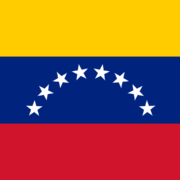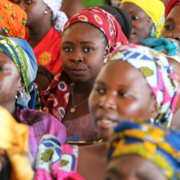East Africa
Burundi
Burundi, a landlocked country in east-central Africa, features a climate moderated by its high elevation, with cool temperatures throughout the year making it well-suited for coffee cultivation.
East Africa
Burundi, a landlocked country in east-central Africa, features a climate moderated by its high elevation, with cool temperatures throughout the year making it well-suited for coffee cultivation.
Population: 13.6 million (CIA factbook)
Main Religion:Christianity (94%)
Christians: 12.8 million
Burundi, is a landlocked country in east-central Africa, south of the Equator. Elevation is a major factor in the nearly 28,000 sq km country’s climate, greatly moderating its tropical character. The country’s generally high elevation produces relatively cool temperatures, which average only about 70 °F (21 °C) throughout the year in the central plateau area and usually drop to below 60 °F (15 °C) at night.
Burundi’s capital, Bujumbura, lies at the north-eastern end of Lake Tanganyika. The old section of the city comprises buildings from the German and Belgian colonial periods, as well as a central market filled with hundreds of vendors’ booths. The country’s second city, Gitega, is also its cultural capital, containing the national museum and several schools. Gitega lies near the southernmost source of the Nile River and a spectacular waterfall, Chutes de la Kagera. (Brittanica)
Burundi is a presidential republic ruled by President Evariste NDAYISHIMIYE (since 18 June 2020). It gained its independence from Belgium in 1962 as the Kingdom of Burundi, but the monarchy was overthrown in 1966 and a republic established. The assassination of Burundi’s president in 1993 triggered 12 years of ethnic violence between Hutu and Tutsi factions. Political violence and non-democratic transfers of power have marked much of Burundi’s history.
Freedom House deems Burundi as “not free” with low scores for political rights (4/40) and civil liberties (10/60). In April, former prime minister Alain-Guillaume Bunyoni, a longtime National Council for the Defense of Democracy – Forces for the Defense of Democracy (CNDD–FDD) stalwart, was arrested. He was sentenced to life in prison in December on charges including plotting to overthrow the government and threatening the life of the president. The interior minister in June suspended the activities of the main opposition party, the National Congress for Liberty (CNL), for alleged irregularities at its last two congresses.
Freedom House reports that although freedom of religion is generally observed relations between the government and the Roman Catholic Church, of which most Burundians are members, have worsened in recent years. In 2019, the UN reported that the government was exerting more control over churches to curb political dissent. Open Doors reports that Christians, who often resist joining the ruling party and its aggressive youth league, find themselves in a precarious situation. They are unable to voice concerns about governance issues and human rights violations, aware of the fate that befell journalists who were forced to flee the country. (Since 2015, numerous journalists have fled the country, and some have even been forcibly disappeared. In 2021, life sentences were issued against seven exiled journalists for their alleged involvement in the 2015 events.) Individuals not affiliated with the ruling party risk losing their jobs and are often coerced into politically-motivated community service, such as constructing offices for the National Council for the (CNDD–FDD) ruling party, which a 2019 UN report labelled as forced labour.
In September 2022, the government passed a law amending the 2014 law that regulates religious groups expanding government oversight over the registration, operation, and management of religious groups. According to Article 46 of the regulations, every church must possess a plot of land dedicated solely to the church building, without any other activities like renting out property. Additionally, the church must be constructed using sustainable materials and covered with iron sheets. There are also restrictions on organizing church services during work hours or holding overnight prayers without administrative approval. Church services are not allowed in classrooms, halls, or other non-designated buildings. Furthermore, there are specific distance requirements between churches, with a minimum of one kilometre in rural areas and five hundred meters in urban areas. Religious institutions were granted a 24-month period to ensure compliance and in Feb 2024, the Ministry of Interior Affairs issued a letter to monitor the steps taken to comply with the law. There are several groups and churches that face the risk of forced closure, unable to meet the stringent requirements.

 West Africa
West Africa